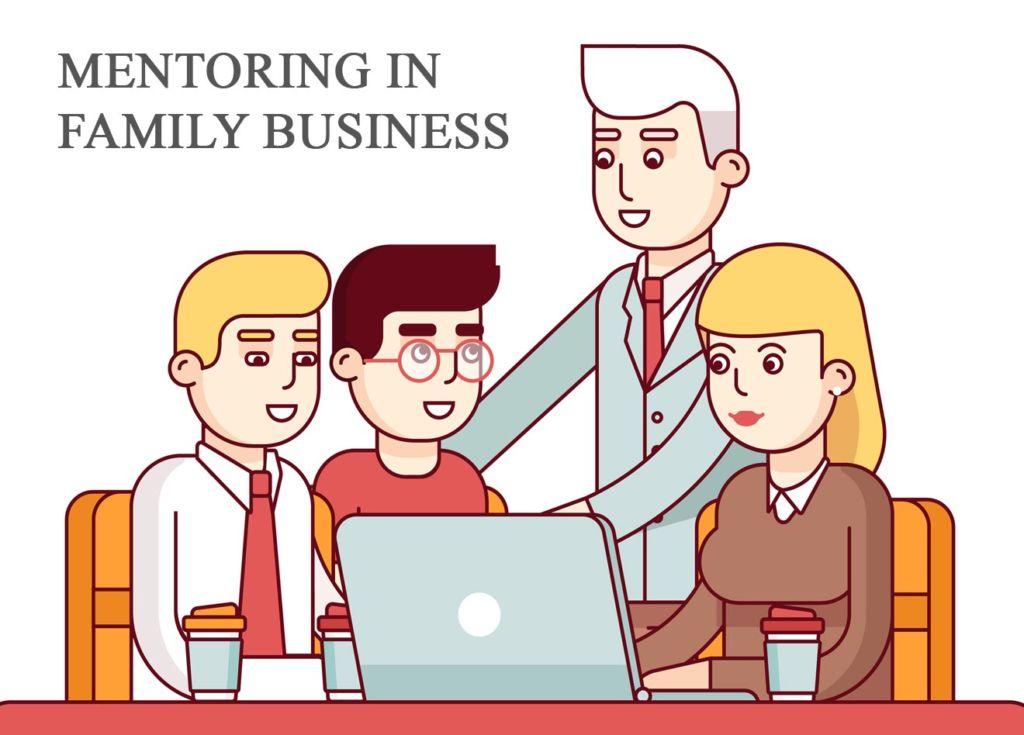
Mentoring In Family Business: Key Areas Of Need
As Bill mentioned in our last thinking column, the foundation to a successful plan in family business transitions is having a shared vision of where you want to go. Once we have this, we can begin to map out an “array of paths to our desired point.” A succession plan that addresses the seven dimensions of succession is one that encompasses the transition of not only leadership, ownership and management, but also authority, values, knowledge, and relationships.
Over the last year, we have been conducting interviews with leaders from successful family businessesacross the country to better understand how mentoring relationships play a role in these generational transitions. Through this research we are exploring and assessing the mentoring needs in family businesses. The goal of our research is to address these family business mentoring needs with programs and tools that will improve and support family business outcomes.
This month, we are going to share some of our findings about the three key areas of need for mentoring in family business: legacy, operations, and human systems.
The legacy of a family business can be a challenging area of knowledge to capture. Family and business history, values, and stories are all part of the legacy that gets passed down from one generation to the next. As a business matures and becomes multi-generational, the family tends to view the business itself as an heirloom, something they are merely taking care of and then passing along to future generations. The more that next generation family members know and understand about the family business’s culture and history, the better positioned they are to help it grow and prosper in future generations, and they in turn can then help perpetuate the legacy.
The operational mentoring needs in a family business are similar to mentoring needs in other business environments, and should be familiar to most. These include focusing on specific knowledge and skill gaps for one’s current position and for future roles. Another operational focus of a mentoring relationship is working on one’s personal and professional growth. In a family business environment a next generation family member will work with his mentor on readiness for leadership, and charting a career development path — these are both appropriate for the operational mentoring relationship.
Human systems mentoring includes providing a safe place for rising generations to be vulnerable as mentees and learners, and supporting the development of family members into mature and confident individuals who understand where they fit in the family business system. This is also a place where a mentee can learn about and discuss the unique challenges of coming into a business as a member of the owning family.
Up to this point, we’ve been talking about the mentoring needs of family businesses, rather than the mentors. Through our research we’ve discovered that mentors can come from several categories, and there may be some overlap among functions and persons. For instance, the legacy mentor is most likely going to be a family member, and that family member may also serve as an operational mentor. In another family the operational mentor could be a non-family member from within the business or from another business. Depending on an individual’s needs, and the experience and characteristics of others in the family, there will not necessarily be a one-for-one match of a mentor for each of the three areas of need.
While there are numerous factors that contribute towards a well-executed succession plan, the learning relationships in your family business are foundational. Ensuring that the mentoring needs across all three areas are met will contribute greatly to next generation learning and development. Intentional and thoughtful planning are key to helping you and your family realize your goals for your family, your business, and successful transitions.
As part of our ongoing research we will be implementing a survey to learn more about the challenges family businesses face when it comes to mentoring including: establishing new programs, questions about existing programs, and finding mentors. The data we collect will help inform the programs and tools we develop. This survey will be distributed to hundreds of family businesses across the United States – contact us if you want to receive the survey. We will share our full report with participating businesses.

Donnel Nunes, Phd & Shelley Taylor
Associates, AFBG


